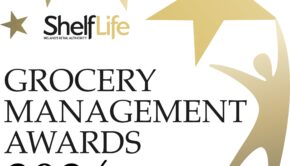Government urged to clarify extra business costs amidst wage hikes and policy changes

Excel Recruitment calls for swift clarification on mounting employment costs for Irish SMEs due to minimum wage increases and impending working conditions reforms
29 November 2023
Government have been urged to clarify the increased employment costs faced by Irish SMEs as a result of rises in the national minimum wage, the introduction of the planned living wage, and other measures proposed to improve working conditions in Ireland.
According to nationwide recruitment experts at Excel Recruitment, recent and anticipated changes in Ireland’s work landscape could result in a significant 36% surge in employment costs for businesses over the next two years. Their calculations indicate that with the living wage becoming the new national minimum wage in January 2026, employers may face an additional expense of €3.70 per hour per employee, marking a 33% increase within the next two years. In addition, businesses will need to accommodate extra costs of 13c per hour for new sick pay entitlements and 23c per hour for the employer’s contribution to Ireland’s inaugural Auto Enrolment pension scheme. Altogether, this translates to an extra €4.06 per hour, reflecting a substantial 36% rise in wage costs over the next two years compared to the current minimum wage rate.
Excel Recruitment forecasts impending costs for businesses, including an increase in the national minimum wage from €11.30 to €12.70 per hour on 1 January 2024, with a projected rise to €15 per hour in 2026 following the adoption of the living wage. Statutory sick pay entitlement is set to expand from three to five days in 2024, seven days in 2025, and ten days in 2026, with payments based on a replacement rate of 70% of regular pay, up to a maximum of €110 per day. Additionally, Auto-enrolment will be phased in, featuring an employer contribution of 1.5% of gross earnings up to €80,000 in the initial three years. These forthcoming changes are poised to impact businesses across Ireland.
Furthermore, employers are now also facing significant increases in PRSI costs following the Government’s recent announcement that it is to increase PRSI for employers, employees and the self-employed over the next five years.
Shane McLave, managing director, Excel Recruitment, said: “In a recent response to a Parliamentary Question, the Minister for Enterprise Trade and Employment, Simon Coveney, said that his Department is assessing the combined impact of the measures proposed to improve working conditions in Ireland, including moving to a living wage, pension auto-enrolment, the right to request remote work, sick pay legislation and improvements to parent’s leave and parent’s benefit. Minister Coveney has said that this analysis will be published by the end of the year. But the reality is Irish SMEs who employ 60pc of the working population, need this guidance now. Already this year, businesses have had to incorporate changes around statutory sick pay, domestic leave entitlements and an increase in the minimum wage. They are now facing into a year of even greater change at the auto-enrolment looms, and the right to request remote working legislation pends.
“Employers are not against these reforms, they are as invested as anyone into making them work – but they cannot be expected to play their part without outside support. To ensure businesses can plan for, and survive, the coming year, the Government needs to put in place far greater support than those that are currently available. It is imperative that the analysis Minister Coveney speaks of gives businesses a true indication as to how much these measures will ultimately cost them in the coming years and is followed up with significant Government support measures for businesses so they can better weather these costs. Otherwise we could see many businesses go under as a result of taking on board costs which ultimately are the Government’s responsibility.
“The reinstatement of the 13.5 VAT rate, as well as the cost of the various other Government measures coming down the line in 2024 and beyond, could be the straw that breaks the camel’s back for many hospitality and tourism businesses. This would repercussions for staff, as well as the consumers, businesses and local economy that rely on such businesses. Something has to give. Reinstating the reduced 9pc VAT rate for the hospitality and tourism sector, as well as extending it to other small businesses, is just one thing that the Government could do to offer some reprieve to the many businesses struggling to keep their head above water today” McLave concluded.



 Print
Print



Fans 0
Followers